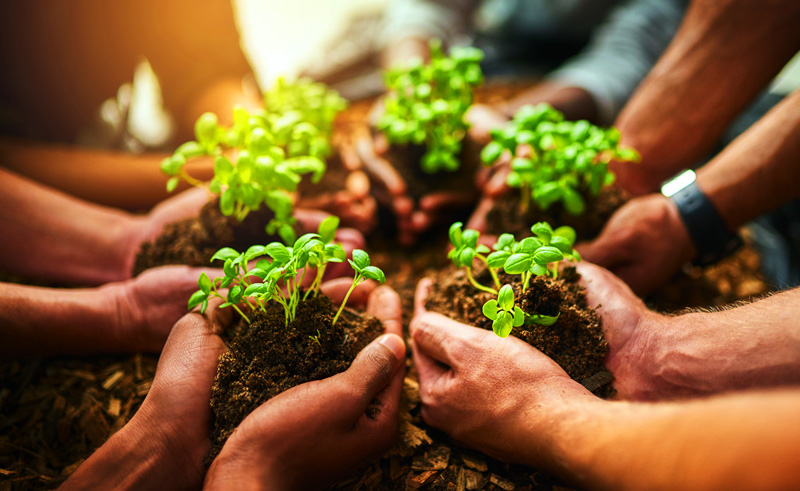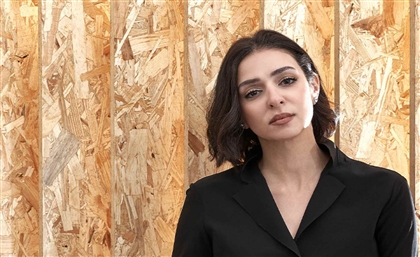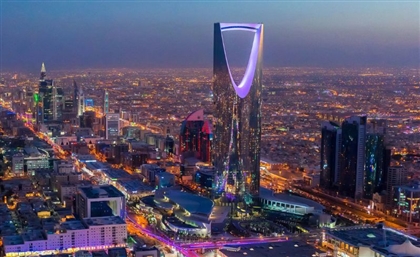How Startups in the MENA Region are Embracing Sustainability
Staff writer May El Habachi speaks with some of the foremost entrepreneurs in the green sphere to discuss the future of sustainability in the MENA region.

With Egypt gearing up for the COP27 United Nations Climate Change Conference in Sharm El Sheikh this November, sustainable and green-tech startups are taking centre stage to tackle some of the world’s most pressing environmental challenges. Not only is climate change at the top of the political agenda, but investors are pouring cash into startups that are demonstrating clear impact in this space, even if it’s against the backdrop of high inflation, disrupted supply chains, and economic uncertainty.
In 2021 alone, green-tech startups globally raised a record-breaking $32 billion. The market is projected to grow to reach $74.64 billion by 2030, according to a report by Allied Market Research.
It is clear that sustainability is no longer a ‘nice to have’, but a necessity to reduce the environmental footprint on our planet - as well as a chance to make some advantageous business dealings. In the Middle East, startups are changing the game to how they’re approaching sustainability. From using disruptive technologies to innovative concepts and common-sense solutions, they are moving quickly and boldly to turn challenges into opportunities.
RELYING ON THE SCIENCE
A startup that is making a dent in Saudi Arabia’s waste management sector is Edama Organic Solutions. Located at King Abdullah University of Science and Technology (KAUST), the startup recycles organic waste and turns it into a high-value compost for desert agriculture, tree plantation, and land restoration projects.
“Across most of the cities around the world, only about 5% of organic waste is recovered, which is very low,” Sabrina Vettori, co-founder and CEO of Edama Organic Solutions, tells StartupScene. “I was very motivated to find alternatives so people would no longer feel the need to send their waste to landfills, and to recycle it instead.”
Vettori succeeded in recycling all the organic waste generated from KAUST through the startup’s newly opened recycling facility. But KAUST is a small community, with many expatriates living on campus. For Edama to truly make an impact in reducing waste to landfills, it needs to go beyond the university walls. The startup currently recycles an estimated 6,000 tons of organic waste per year, which is about 4,500 cubic metres of compost. While this is no small feat for a young startup, Edama is now looking to increase its composting capabilities by expanding across the Kingdom and the region at large.
“We are currently raising funds and talking to several investors to decide on our next step,” says Vettori. “In the next six months, we expect to have a big investment in the company that will enable the growth and development of our facilities outside KAUST. We already are in negotiations for expanding in Riyadh, Jeddah, and Dammam. In the next two to three years, we are also going to look at expanding regionally.”
What makes Edama attractive to investors is its adoption of a scientific approach to the process of composting. It uses chemicals and biological tests to create soil solutions suitable for the country’s agriculture sector.
“The products we make have a huge impact in rebuilding the soil,” Vettori explains. “They give back life to the soil because the microbiology is there, whereas very few other composting companies are able to do that around the world. By adopting this approach, we can really derive the maximum benefit out of the waste, and support our agricultural sector by saving water, reducing the inputs of chemical fertilisers and pesticides, and making our plants more resilient to droughts and floods.”
DRIVING CHANGE
While innovative and scientific-based solutions are critical to solving key environmental challenges, regulations are also a major factor in driving change. The waste management industry in the Middle East is still considered a nascent sector with low recycling rates, limited public awareness and insufficient government frameworks. Many countries in the region still don’t make recycling mandatory for households.
Yet, strides are being made to regulate this sector across the region. Mostafa Hemdan, Chief Operating Officer of Greest, a UAE-based e-waste recycling company serving the MENA region and mother company of Greenplace Egypt, states that Egypt’s recent legislation on waste management, which was introduced in 2018, is helping raise awareness on the proper handling of waste.
“There are clear and strong legislations from the Ministry of Environment about the proper handling of not just electronic waste, but all types of waste, including medical, industrial, chemical,” Hemdan says. “They are now handled by accredited recyclers, so not anyone can handle and recycle waste like before. That’s a big step forward.”
Known for its large army of informal waste collectors - who for decades have been sidelined by the government, albeit unsuccessfully - Egypt’s new legislation paves the way for the formal integration of recyclers into the country’s official waste management system. “Informal workers can now formally establish companies, which helps create economic and social impact,” explains Hemdan. “By having a company, you hire employees, which is good economically, and you create social impact by handling waste in the right way. Which is to say, without burning it, as was commonly practised before. So, the cycle of sustainability becomes a closed loop.”
Other countries in the region are quickly following suit. In 2021, the UAE put in place several sustainable practices for the hospitality sector to reduce food and water waste, amongst other requirements. Saudi Arabia also recently introduced a new waste management law with the goal of conserving natural resources and reducing the environmental impact of waste in the country.
TURNING SOLUTIONS INTO ACTIONS
There is no doubt that regulations and innovative startups are fueling the sustainability movement in the region. To truly create impact, however, sustainable practices need to be integrated into people’s daily lives, and technology-enabled solutions can help do just that. By providing innovative solutions, they’re not only able to address key environmental challenges, but also increase users’ access to much needed products and services, further turning solutions into tangible actions.
Jackie Kameel, Managing Director of Nahdet El Mahrousa, an Egyptian non-governmental organisation (NGO) that serves as an incubator for social enterprises, states that sustainability has significantly evolved over the years to include the needs of people from all strata of society. “Sustainability is trickling down,” Kameel says. “It’s no longer for the well-educated, and those with financial status, or those who understand the importance of waste management. It is for everyone who needs innovative solutions to make their lives easier.”
She adds that some farmers today rely on solar irrigation to conserve electricity while others opt for crowd-sourcing solutions, all of which help reduce costs. “Sustainability has moved from being a ‘good’ concept, to being integrated into people’s day to day lives,” Kameel explains.
As the sector continues to grow, so is investor appetite for impact investing- an investment strategy that seeks to generate financial returns while also creating a positive impact for society. According to a 2022 report by Dealroom, $12.9 billion was raised by impact startups globally in Q1 2022; that’s double the total from Q1 2020. These findings are in alignment with what Nahdat El Mahrousa is seeing on the ground.
“The clean and green sector is well positioned and understood by impact investors,” Kameel says. “It is their ‘go to’ when looking to create impact in society and at the same time support startups with clear business models.”
Although impact investment is gathering pace, it seems to be mostly directed at tech-based startups. The Waste Lab, a recycling startup based in Dubai, has raised $150,000 in a pre-Seed round in March 2022, and is now gearing up for its Seed round to further grow its business. Despite this, it is finding it increasingly difficult to attract investors because it doesn’t use tech-based solutions for composting.
“It is challenging to find impact investors, funds or grants in the region dedicated to impact investment for nature-based solutions,” says Lara Hussein, co-founder of The Waste Lab. “We see most investments are focusing on tech-heavy startups and solutions. Our technology is nature.”
To achieve tangible results, it seems impact investors should look for startups working on solving real problems, whether they use innovative technologies or opt for simple common-sense approaches. Perhaps, as public awareness increases and more regulations are introduced, investors will see the opportunity presented by startups embracing social impact goals. For now, though, investors are acting decisively on environmental issues, making it a golden opportunity for startups selling services and solutions around sustainability.
“There are solutions in our hands all the time,” says Kameel. “The market is responding whether by providing technical assistance, developing financial services or having supporters like us guide startups. Progress is definitely being made, but if we want a planet that is sustainable for us and our children, we really have to do far more than we are currently doing.”
- Previous Article Source Beauty Sells Majority Stake to Egyptian Company for Cosmetics
- Next Article UAE’s Metaverse Startup MetaFi Raises $3 Million






















